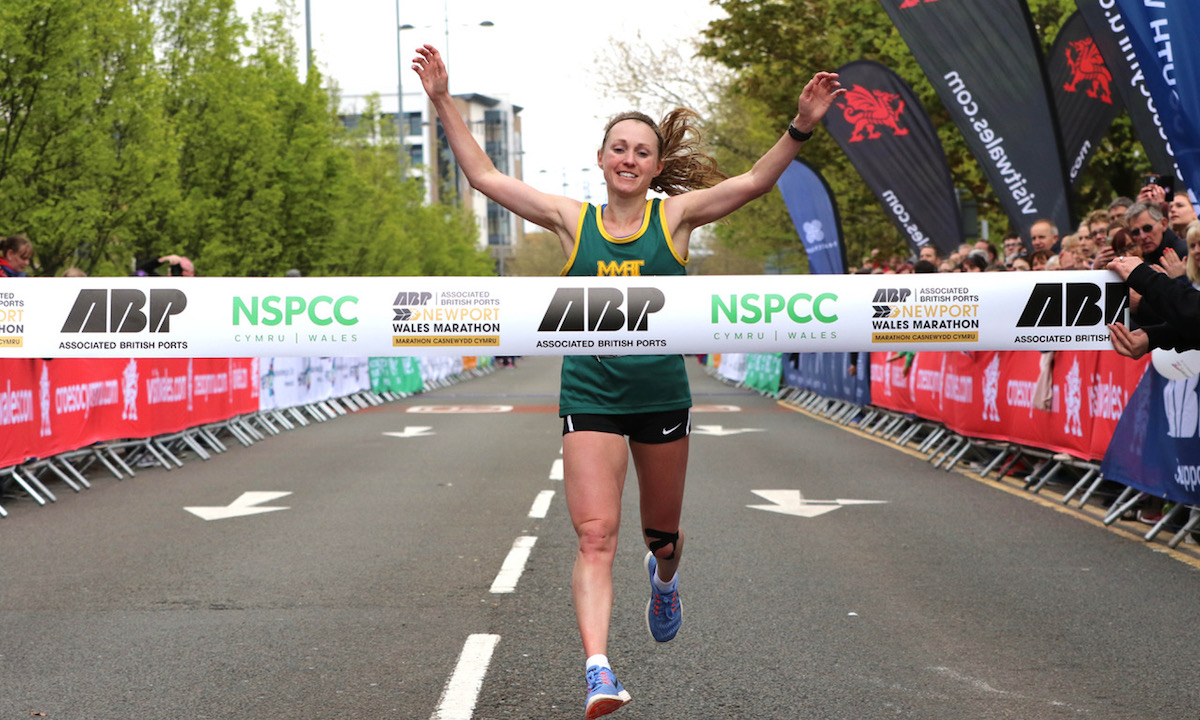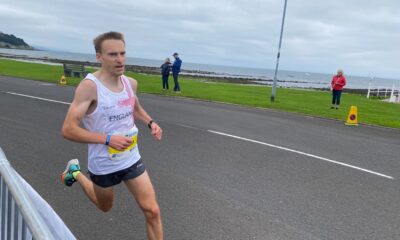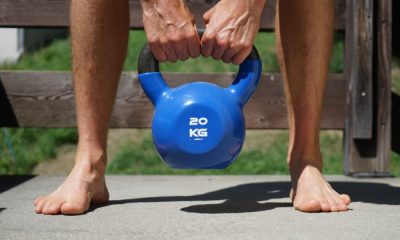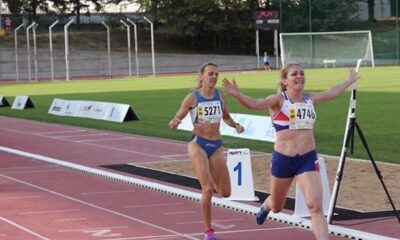
Natasha Cockram’s latest Fast10 article looks beyond the physical coping process around injury, to the mental strategies.
After my last blog I asked readers what they would like to see in my next piece of writing. One reoccurring topic that came up was “How do you mentally deal with injury”.
I received several messages from runners at all levels asking for advice and talking about their mental health struggles during difficult times. This is something most athletes experience at some point in their career and is something I have had my fair share of experience with.
We often read about success stories of coming back from injury, but there seems to be a lack of information on the injury/illness phase. Recovery often focuses on physical rehab, but it is also important to include the psychological aspect to get through these difficult periods.
When help is needed the most
Injury or illness periods are a time when we all need the extra help, coping mechanisms and support to get through. After writing my dissertation on the barrier’s athletes face on getting mental health help and as someone who has experienced long periods out through both injury and illness, I hope to offer some advice to help others through the inevitable barrier every athlete will face at some point in their career.
As an overview of my own experience, a few that have stood out was my first stint of illness during my second year at university where I spent a year or so fighting through and getting over glandular fever.
My second stint was during my fourth year when in the doctor’s words I had a “career ending” injury which took me a good two years, if not longer to get back to fitness. My most recent injuries came at the worst time- one week prior to London Marathon and then came a horse kick four days before Dublin Marathon.
Injuries and illnesses are devastating to athletes and even more devastating when they come at the end of a long training block, just before a race. The injury itself is often apparent resulting in all treatment and rehab to be focused on the physical aspect. But what about the psychological aspect that just took as big a knock (if not bigger) as the actual injury itself?
Feeling the weight of injury
When things go wrong it can be easy to get weighed down with negativity and even become irrational. It is easy to give up on your goals and completely lose sight of why you have just spent the past few months pushing your body through gruelling workouts. It’s times like this when we need to realise these feelings are normal and there are ways to treat them just like there are ways to treat the physical injuries.
I think the first step to take is to realise is although these feelings might seem extreme, they are in fact are normal.
If you don’t experience any feelings then you probably aren’t as committed to your goals as you should be. Each athlete may react differently but there are several traits that are common responses for a lot of athletes which include anger, depression, low self-esteem, fear, anxiety, isolation and even denial. Injuries seem unfair and on the surface it’s impossible to see past the negatives, however it is important we find positive strategies to cope with the set-backs.
It is also important we learn from each injury just as we would learn from each race or training session.
Coping Mechanisms
Something I struggled with during my first two stints (glandular fever and my knee injury) was not knowing what was wrong. I knew something was wrong but doctors couldn’t tell me what. All my test results came back normal which in one sense was good but this caused great frustration as I knew something was wrong.
The frustration then turned into low self-esteem and a lose of sight on my goals. It got to the point where I even tried telling myself I was just being weak and it was just in my head.
I tried to run in denial and get through the pain which then lead to me telling myself I wasn’t strong enough to cope with the demands of an elite athlete as the more I went on the harder things got. The biggest take I got from both these experiences is- you know your body better than anyone else!
Test results and health professionals can be wrong sometimes. If you can’t get answers continue to search for the answers until something makes sense. Feeling pain or feeling unwell is not a weakness, giving up is a weakness, so don’t give up- somewhere or someone will have an answer.
Set smaller, achievable goals along the way
Another struggle I faced, was post-surgery when everything seemed impossible and all my previous goals seemed unrealistic. I had the goal of running the commonwealth standard yet I couldn’t even walk! This is when the use of short-term goals is important to help focus on the current situation.
However small a goal may seem it can keep you motivated.
Once I could walk, a goal I had post knee surgery was to be able to push the pedal on a stationary bike in the complete circular motion- this took me weeks of sitting on a bike pushing the pedal down then repeating. When I finally had the mobility to push the pedal all the way around, I was so happy that the feeling of accomplishment is still so clear in my mind several years on that achieving what seems like an insignificant goal has stayed with me.
Use cross-training to help overcome the challenges
Prior to running Newport Marathon, just when training was starting to come together, I picked up another knee injury. After the normal irrational reactions, I was able to maintain my focus through cross training. If you can’t run but can-do different forms of exercise to maintain your fitness this can act as a great psychological relief as well as give you all the physical benefits that come with it.
When I got injured one week out from London, I experienced the feeling of denial. I had trained for months; I had just got over the flu so to then get injured as well was too much for me to accept.
A marathon is perhaps the worst race to try and deny an injury as trust me 26.2 miles will show you there is no way to hide from an injury or illness. The disappointment of my performance at London left me in a far greater emotional state than what accepting the injury and withdrawing from the race would’ve left me.
Listen to your body
The biggest lesson I learnt from this was always listen to your body. You are better off accepting an injury and dealing with it right away rather than acting in denial, prolonging recovery and dealing with the mental knock from a bad race on top of the original negative emotions that already came with the injury.
Something else that I have also found a major help when dealing with injuries is surrounding yourself with the right people. You know you have a good coach if he or she will support you through injury unlike several coaches who just write their athletes off during injury. Injuries can be isolating as you are taken away from something that you normally do every day.
If you have a coach or teammates who don’t want to know you when you are injured this will only elevate the feeling of isolation further. Isolation then leads to further negative feelings, turning injuries into a vicious psychological cycle. It is so important to surround yourself with positive people and people who believe in you.
Injuries can make you a better athlete
Prior to injuries I took running for granted and definitely took my running goals for granted. Injuries have made me resilient and have made me value every day I can run. Therefore making every day count.
The big injuries have made me level headed and have helped me to overcome other barriers and smaller injuries. For example, before Dublin marathon when I got kicked by a horse 4 days prior to race day I was able to stay level headed and keep a positive mindset despite the undesirable circumstances.
Without the other injury barrier’s, I have had to overcome I think my reaction to the kick would’ve been far different and impacted on my performance and perhaps I would’ve never have broken the Welsh record.
Also remember how far you’ve come
When something is hard, I think to myself, I’ve overcome an injury that doctors said would end my running career, if I can do that I can definitely get through a minor injury, hard work out or hard race!
Rewinding back to when I was struggling with glandular fever and then when I had my first knee injury, whilst Olympics was always my dream it never seemed realistic. But now Olympics is a realistic goal, to look back and remember the months I was bed bound and the months I couldn’t walk it seems unrealistic to think that was actually me.
Injuries and setbacks have really taught me anything is possible if you truly want it and if you have the right mind-set and work hard for it.
Are you a fan of Fast Running? Then please support us and become a patron. For as little as the price of a monthly magazine you can support Fast Running – and it only takes a minute. Thank you.



















